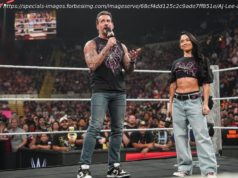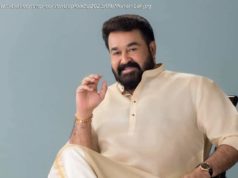Mr. Kapoor, who appeared in scores of Hindi films as well as Merchant Ivory productions, broke a taboo in 1978 with an onscreen kiss.
Shashi Kapoor, one of India’s best-known actors, who appeared in more than 100 films in the 1970s and ’80s alone, died on Monday in Mumbai. He was 79.
India’s president, Ram Nath Kovind, announced the death on Twitter. Mr. Kapoor had been in poor health for years; a nephew, the actor Randhir Kapoor, told the news agency Press Trust of India that Mr. Kapoor had been on dialysis.
Mr. Kapoor was the romantic lead in numerous Bollywood movies during a period when the Hindi film industry was in overdrive. He was part of a family of actors, directors and producers that included his older brothers Raj, who died in 1988, and Shammi, who died in 2011.
Mr. Kapoor appeared in British and American films as well as Hindi ones, including several by the Merchant Ivory production house. Among his better-known English-language films were “The Deceivers” (1988), a thriller in which he acted alongside Pierce Brosnan, and “Sammy and Rosie Get Laid” (1987), a comic drama directed by Stephen Frears whose cast included Claire Bloom.
Among his scores of film credits, Mr. Kapoor caused a particular stir with “Satyam Shivam Sundaram: Love Sublime,” a 1978 movie directed by his brother Raj in which he did something that had been banned in Hindi films for years: shared an onscreen kiss (several, actually) with his female co-star, Zeenat Aman.
The country maintained tight restrictions on filmmakers during Indira Gandhi’s first term as prime minister; when that ended in 1977, one result was a more relaxed film code.
“I hope the new rules will encourage directors to make more logical love stories,” Mr. Kapoor told The New York Times for an article about the kiss. “Also, with realistic treatment of the romantic theme, perhaps we can get away from having so much violence in our films.”
Balbir Raj Kapoor was born on March 18,1938, in what was then Calcutta (now Kolkata). He had no trouble breaking into the movie business: His father was Prithviraj Kapoor, a famous actor. His mother was the former Ramsarni Mehra.
Shashi, as he became known, was still a child when he appeared in his first films, in the 1940s and ’50s. By the 1960s, though, he was being cast in major roles in romantic dramas like “Char Diwari” and “Dharmputra” (both 1961).
In 1963 he played a teacher in the domestic comedy “The Householder,” directed by James Ivory and produced by Ismail Merchant, the first of a series of films Mr. Kapoor made for that production team.
Bosley Crowther, reviewing the movie in The Times, found it sluggish and called Mr. Kapoor “colorless and clumsy in what is really a disagreeable role.” But Mr. Kapoor’s notices got better. In “Shakespeare Wallah” (1965), also directed by Mr. Ivory, he was half of the central couple, playing opposite Felicity Kendal. Mr. Crowther said the characters’ romance was “warmly, vitally played.”
“Shakespeare Wallah,” the story of an English Shakespeare troupe performing its way across India, contained an art-imitates-life element. Ms. Kendal was part of an English theatrical family in India. Mr. Kapoor had married her sister, the actress Jennifer Kendal, in 1958.
In 1970 the real-life couple played the leads in another Merchant Ivory film, the musical romance “Bombay Talkie.” Jennifer Kendal died at 50 in 1984 .
Mr. Kapoor was among the busiest actors anywhere in the 1970s and ’80s, appearing in numerous movies as India’s film industry fed a voracious public appetite. He was often shooting multiple movies at the same time, spending his days hopping between sets.
“Of course, a lot of these films look silly,” he told The Times for an article about how movies had become a sort of balm for India’s poor. “But this is exactly what people want, pure escapism. You have people who are uneducated, poor, hungry — they want to escape from all that, they want and need some unreality.”
He was one of India’s biggest stars in these decades. His frequent pairings with another household name, the actor Amitabh Bachchan, in films like “Deewaar” (1975) and “Kabhie Kabhie” (1976), only added to his drawing power.
In the late 1970s Mr. Kapoor and his wife established the Prithvi Theater in Mumbai, which continues to present plays and other performances.
His survivors include a daughter, Sanjana Kapoor; two sons, Kunal and Karan; and several grandchildren.
In an interview with India Today in 1996,Mr. Kapoor was asked about his most striking childhood memories.
“My happiest moment,” he said, “was when my brother Raj Kapoor beat me up and then felt bad and took me to a Chinese restaurant for lunch.”
And the other extreme? “My unhappiest moments,” he said, “were when I would not be allowed to see a movie.”






